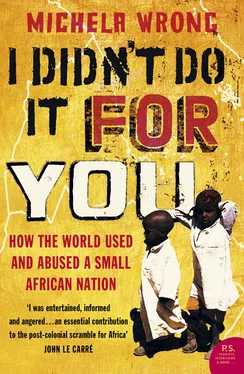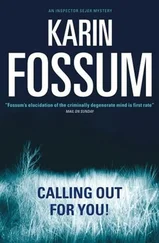In it, Martini pulls no punches about the Italian-made horrors he witnessed in Eritrea. He describes the notorious âField of Hungerâ â a desolate plain outside Massawa where the town governor had ordered destitute natives to be taken and left to die. âCorpses lay here and there, their faces covered in rags; one, a horrible sight, so swarmed with insects, which snaked their way through limbs twisted and melted by the rays of the sun, he actually seemed to be moving. The dead were waiting for the hyenas, the living were waiting for death.â
Martini takes to his heels after glimpsing a group of young Eritrean girls sifting through mounds of camel dung in search of undigested grain, fighting for mouthfuls from a horseâs rotting corpse. âI fled, horrified, stupefied, mortified by my own impotence, hiding my watch chain, ashamed of the breakfast I had eaten and the lunch that awaited me.â
He winces at the use to which the curbash is put, on both sides of the recently-established border. âAcross the whole of Abyssinia, not excluding our own Eritrean colony, the curbash is an institution. Native policemen and guards are issued with it and when needs must (and it seems, from what I saw, that needs must rather often) they flog without mercy.â
Visiting an orphanage, he is repulsed by the sight of the sons of Eritrean rebels, shot âfor the sole crime of not wanting Europeans and not wanting to take ordersâ, being taught to sing Romeâs praises. âConquest always comes with its own sad, sometimes dishonest, demands. Yet this seemed, and still seems, an outrage against human nature. Even now, remembering it, I feel a rush of blood to my head.â
Elsewhere, he bitterly ruminates on the hypocrisy of the Italian colonial project. âWe are liars. We say we want to spread civilization in Abyssinia, but it is not true ⦠Far from being barbaric and idolatrous, these people have been Christians for centuries ⦠We claim to want to end the fratricidal wars that have crushed any sprig of human industry in those regions, yet each day we sign up Abyssinians in our forces and pay them to butcher other Abyssinians.â
Yet having supped full of such horrors, having grasped the extent of his governmentâs hypocrisy, Martini comes to what might seem a counterintuitive conclusion. It is now too late, he argues, for Italy to pull out of Eritrea. By embarking in Africa, Italy has set in motion an unstoppable process of racial extermination which, however distasteful, must be allowed to run its course. Any other policy would be shameful. Rather than wasting time fretting over the legal niceties of land confiscation, he argues, Italy should be dispatching farmers to start work. âLet me repeat it for the 10th time: I would have preferred us never to have gone to Africa: I did what little I could, when there was still time, to get us to return home: but now that that time has passed ⦠it is neither wise nor honest to keep spreading exaggerated stories.â One can hear a sardonic disdain in Martiniâs voice as he imagines the eventual fate of Africaâs indigenous tribes. âWe have started the job. Succeeding generations will continue to depopulate Africa of its ancient inhabitants, down to the last but one. Not quite the last â he will be trained at college to sing our praises, celebrating how, by destroying the negro race, we finally succeeded in wiping out the slave trade!â
The white race is ordained to supplant the African. âOne race must replace another, itâs that or nothing ⦠The native is a hindrance; whether we like it or not, we will have to hunt him down and encourage him to disappear, just as has been done elsewhere with the Redskins, using all the methods civilization â which the native instinctively hates â can provide: gunfire and a daily dose of firewater.â
His language is staggeringly blunt, but it is meant to shock. Martiniâs main message to his Italian readers, to paraphrase it in crude modern terms, was: âLetâs cut the crap.â A genocide is already under way in Eritrea, he tells his audience, a genocide that is the expression of ineluctable historical forces. âWe have invaded Abyssinia without provocation, violently and unjustly. We excuse ourselves saying that the English, Russians, French, Germans and Spaniards have done the same elsewhere. So be it ⦠injustice and violence will be necessary, sooner or later, and the greater our success, the more vital it will be not to allow trivial details or human rights to hold us up.â Moral squeamishness cannot be allowed to stand in the way of a glorious master project. Let us not shrink from what is necessary, however distasteful. But let us, at the very least, have the decency to admit what we are doing. 8
In modern-day Eritrea, popular memory tends to divide the Italian colonial era into two halves; the Martini years, time of benign paternalism, when Eritreans and Italians muddled along together well enough; and the Fascist years, when the Italians introduced a series of racial laws as callous as anything seen in apartheid South Africa. But as NellâAffrica Italiana shows, the assumptions of biological determinism that came to form the bedrock of both Fascism and Nazism were present from the first days of the Italian presence in Africa. The thread runs strong and clear through half a century of occupation. If men of Martiniâs generation, in contrast with their successors, felt no need to enshrine every aspect of their racial superiority in a specific set of laws, it was only because they took their supremacy utterly for granted.
Martini is a fascinating example of how it is possible for a man to be both painfully sensitive and chillingly mechanistic. The views he expressed were the notions of his day, an era in which Darwinâs theories of Natural Selection and survival of the fittest were used to justify the slaughter of Congoâs tribes by Belgian King Leopoldâs mercenaries, the German massacre of the Herero tribesmen in South West Africa and the British eradication of Tasmaniaâs natives. Like the rabbits a British landowner introduced to Australia, like the rampant European weeds overrunning the New World, the intellectually and technologically superior white races would push aboriginal tribes into extinction. British Prime Minister, Lord Salisbury summarized the philosophy in a famous 1898 speech. âYou may roughly divide the nations of the world as the living and the dying. The weak states are becoming weaker and the strong states are becoming stronger ⦠the living nations will gradually encroach on the territory of the dying.â 9
Nor was Martini alone in finding the process distressing to watch. A strange kind of benevolent ruthlessness has always been the hallmark of the colonial conqueror. From H. Rider Haggardâs fictional hero Allan Quatermain muttering âpoor wretchâ as he puts a bullet through yet another Zulu warriorâs heart, to the real-life Winston Churchill, shuddering with excitement and horror as shellfire rips through Mahdi lines at Omdurman, the literature of the day is peppered with compassionate exterminators. Martini was too intelligent not to grasp the humanity of the wretched Eritreans he met. Their plight, he told his readers, haunted his dreams. But at the end of the day, despite all his anti-establishment posturing and elegant irony, nothing mattered more to this Italian patriot than the greater glory of the Motherland.
NellâAffrica Italiana contains one last clue as to why Martini changed his mind on Eritrea, though it is hard to distinguish authentic feeling from the rhetoric considered appropriate to the closing paragraphs of a 19th-century memoir. Sailing out of Massawa, Martini launches into a high-octane paean to Africa, the continent where, he says, âthe mind purifies, the spirit repairs itself and we find Godâ. âOh vast silence, oh nights spent in the open air, how you invigorate the body and strengthen the soul!â he raves. Adopting the pose of jaundiced Westerner weighed down by the burdens of civilization, he envies the nomads of Africa. In their âhappy ignoranceâ, he says, they never think to ask the moon why it moves across the sky or interrogate their flocks on the meaning of life. âHow sweet it is to dream, amongst sands untouched from one month to another by a human footprint, of a society without sickness or strife, without wars or tail-coats, without coups dâétat and visiting cards!â It is a vision of the Noble Savage that owes everything to Rousseau and Romantic poetry and nothing to reality. Like so many travellers to Africa before and after him, Martini confused the absence of a set of rules recognized by a European with personal freedom. Plagued by outbreaks of cholera and the raids of local warlords, bound by their own communityâs conservative codes of behaviour, Eritreaâs nomads had far more reason to feel hemmed in than an effete Italian aristocrat on a government expense account.
Читать дальше












